Inflammation is the body’s natural response to protect itself from injury, but it can cause damage when experienced for a long time. Feeling like you’re constantly battling inflammation? These best spices for inflammation may be the answer.
You may not need an expensive prescription. All you need to do is head to your kitchen! Herbs and spices are some of the most powerful natural anti-inflammatories, packed with antioxidants. When used regularly, it can have a significant positive impact on your overall health.
Read this blog post to learn about each spice and how they could benefit your health through their anti-inflammatory effects.
Ginger
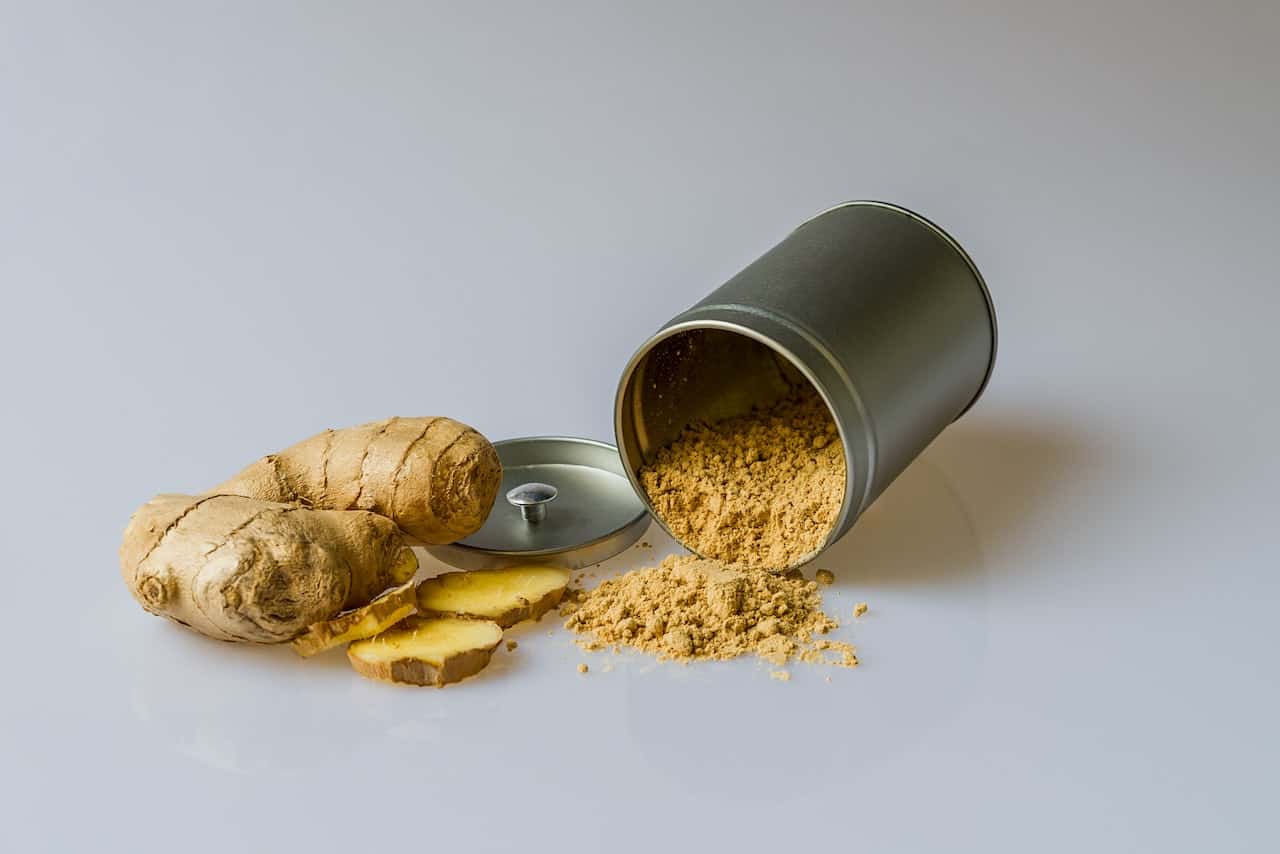
Inflammation is a natural response that the body has to injury and infection, but specific lifestyle choices can also cause it. Thankfully, there is a natural remedy to help reduce inflammation – ginger. Ginger is an incredibly versatile root used for centuries in many cultures for medicinal and culinary purposes.
Let’s explore why ginger may be so beneficial for reducing inflammation.
Anti-Inflammatory Properties
Ginger contains active ingredients such as gingerols, paradols, shogaols, and zingerone, which all work together to provide anti-inflammatory benefits. These compounds are known as “gingerols” because they contain the same chemical structure as capsaicin. It is the compound responsible for reducing inflammation in hot peppers. Studies have found that these gingerols can effectively inhibit inflammatory pathways in the body, which helps reduce inflammation.
Additionally, some studies suggest that ginger may be more effective than some nonsteroidal anti-inflammatory drugs (NSAIDs), such as ibuprofen or aspirin when it comes to reducing inflammation.
Reduce Pain Associated With Inflammation
Aside from its anti-inflammatory properties, ginger can also help reduce pain associated with inflammation. It is because ginger helps block critical neurotransmitters in the body that are responsible for transmitting pain signals throughout the body.
Furthermore, studies have found that consuming two grams of powdered ginger daily can significantly reduce pain intensity compared to those who took a placebo or NSAIDs. As such, regularly consuming ginger may help relieve chronic pain associated with inflammation.
Relief of Other Conditions Related to Inflammation
In addition to reducing inflammation and pain associated with it, studies have also found that regularly consuming ginger can help improve other conditions related to inflammation, such as rheumatoid arthritis and osteoarthritis.
A recent study published in the journal Phytotherapy Research found that taking 1 gram of powdered ginger daily improved symptoms of rheumatoid arthritis after three months compared to those who took a placebo.
Similarly, another study on patients with osteoarthritis found similar results after six weeks of taking 1 gram of powdered ginger daily compared to those who took a placebo.
Turmeric
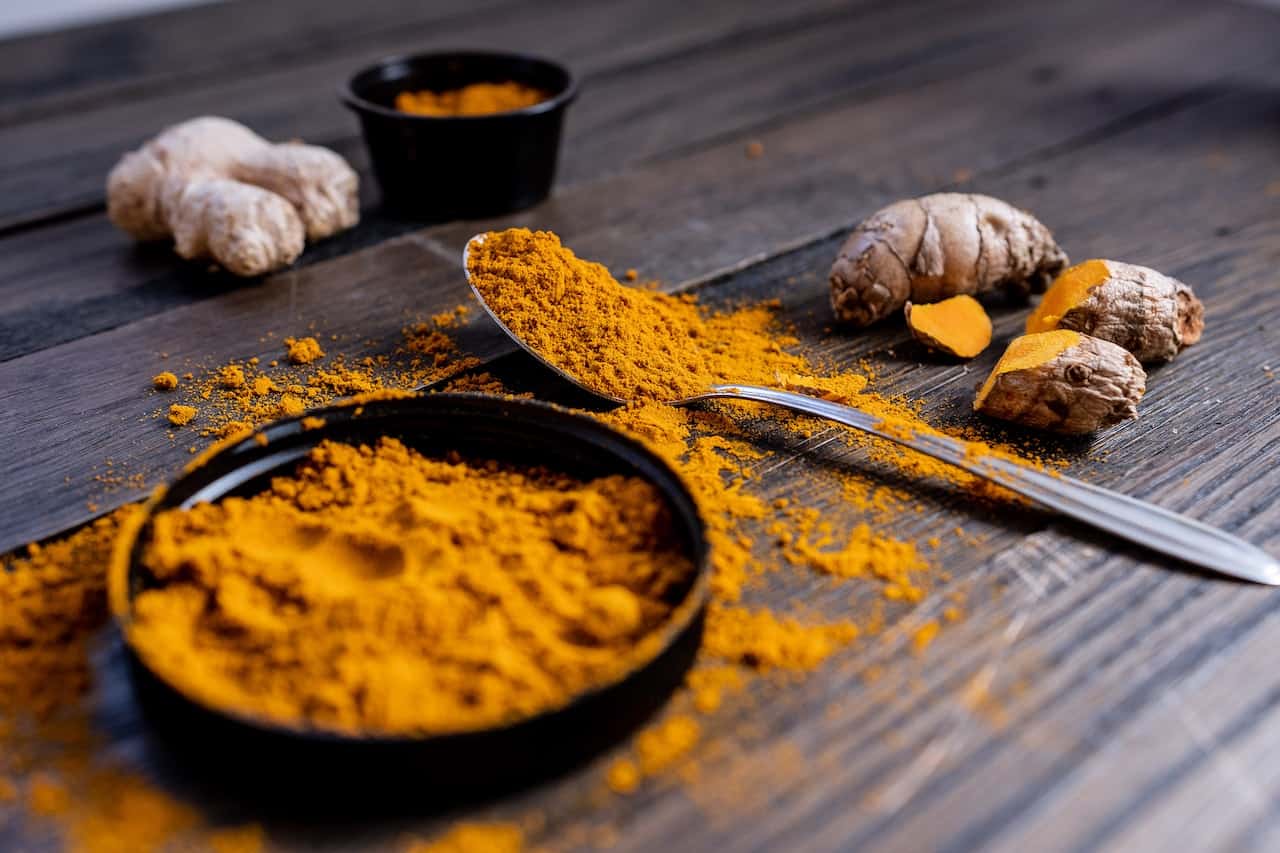
Many have used turmeric as a medicinal herb in India and China for centuries, but only recently has it become popular in Western cultures. Its active ingredient, curcumin, is believed to have anti-inflammatory properties. But how exactly can turmeric help with inflammation? Let’s take a look.
Anti-Inflammatory Properties
The active ingredient in turmeric, curcumin, has been studied extensively for its anti-inflammatory properties. It works by inhibiting key molecules responsible for producing pro-inflammatory cytokines, which play a significant role in inflammation.
Countless scientific studies have demonstrated that curcumin can impede the activation of NF-κB, which triggers inflammation-related genes. A comprehensive study of 15 high-quality studies followed 1,223 people who took doses of 112–4,000 mg of curcumin daily for periods ranging between 3 days and 36 weeks. Results showed that taking curcumin had a meaningful impact in reducing inflammatory markers compared to placebo intake.
Reduce Pain Associated With Inflammation
Curcumin inhibits the production of certain inflammatory compounds that lead to swelling, pain, and redness. It also works by activating specific pathways in the body that help reduce inflammation throughout all areas of the body.
Relief of Other Conditions Related to Inflammation
In addition to its anti-inflammatory effects, curcumin may benefit other health conditions, such as arthritis and joint pain. Studies have shown that curcumin supplements can reduce pain and improve mobility in people with osteoarthritis or rheumatoid arthritis. It may also be helpful for people who suffer from chronic muscle or joint pain due to inflammation.
Turmeric has antioxidant properties, which can help protect cells from damage caused by free radicals. Free radicals are molecules from normal metabolic processes and environmental factors such as pollution and UV radiation.
They can cause oxidative stress, which leads to cell damage and can contribute to aging and diseases like cancer. Antioxidants help neutralize free radicals before they can cause any harm, thus protecting our cells from damage.
Garlic
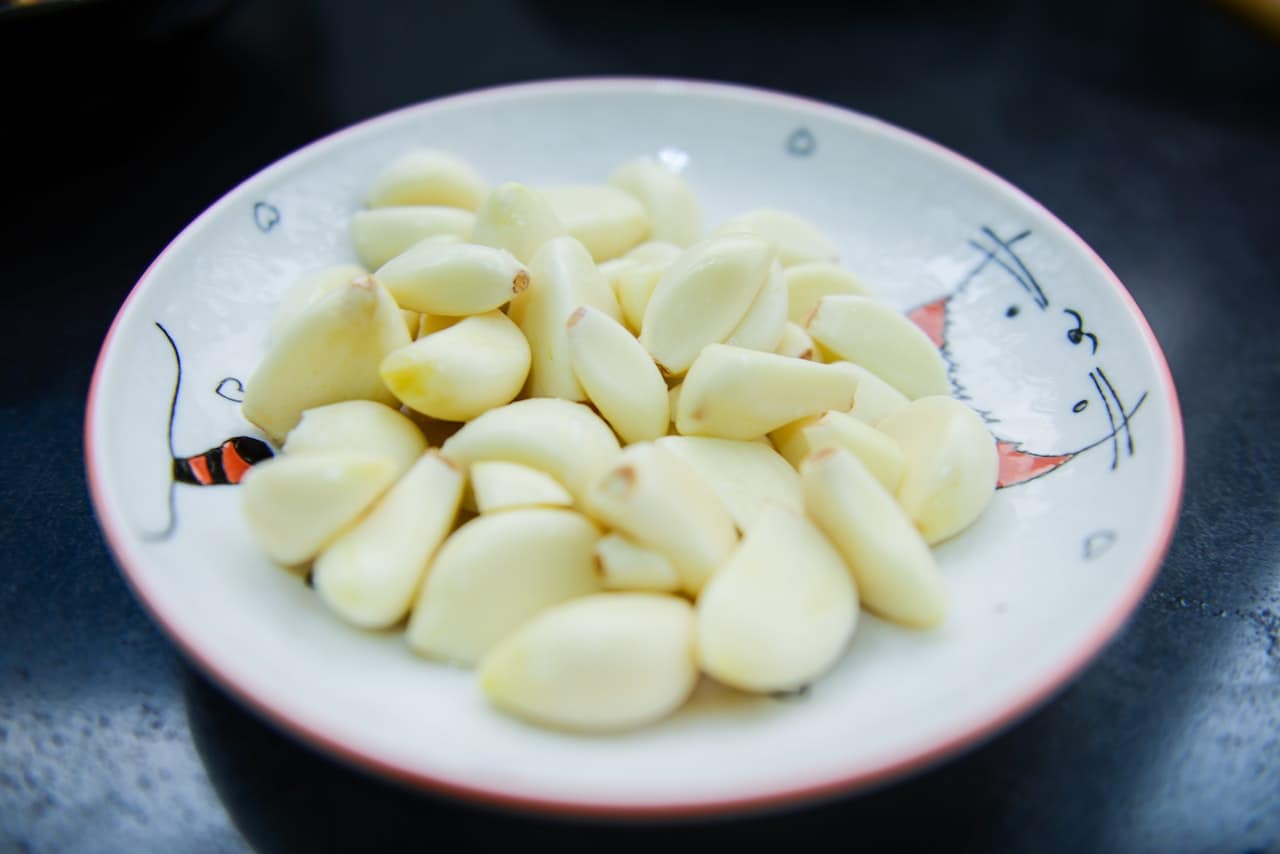
Garlic has been used as a remedy in traditional medicine for centuries, and modern science is now uncovering the potential benefits of this pungent herb. Let’s look at how you can use garlic to reduce inflammation and improve your overall health.
Anti-Inflammatory Properties
Garlic is rich in anti-inflammatory compounds, including allicin, which has been well-researched for its anti-inflammatory properties. Allicin works by blocking the production of enzymes responsible for inflammation. Additionally, garlic contains antioxidants and other compounds that may help reduce inflammation, such as S-allylcysteine and diallyl disulfide.
Relief of Other Conditions
Another benefit of garlic is that it may help lower blood pressure. High blood pressure can increase inflammation throughout the body, so keeping it under control can help reduce systemic inflammation. In addition, garlic has antimicrobial properties, which can help protect against infection and further reduce inflammation caused by bacteria or viruses.
Finally, garlic contains sulfur compounds called thiosulfinates which have potent anti-inflammatory effects and may be beneficial in reducing joint pain associated with arthritis or other inflammatory conditions. Studies also suggest that these compounds may help protect against certain cancers due to their antioxidant activity and ability to reduce inflammation at a cellular level.
Black Pepper
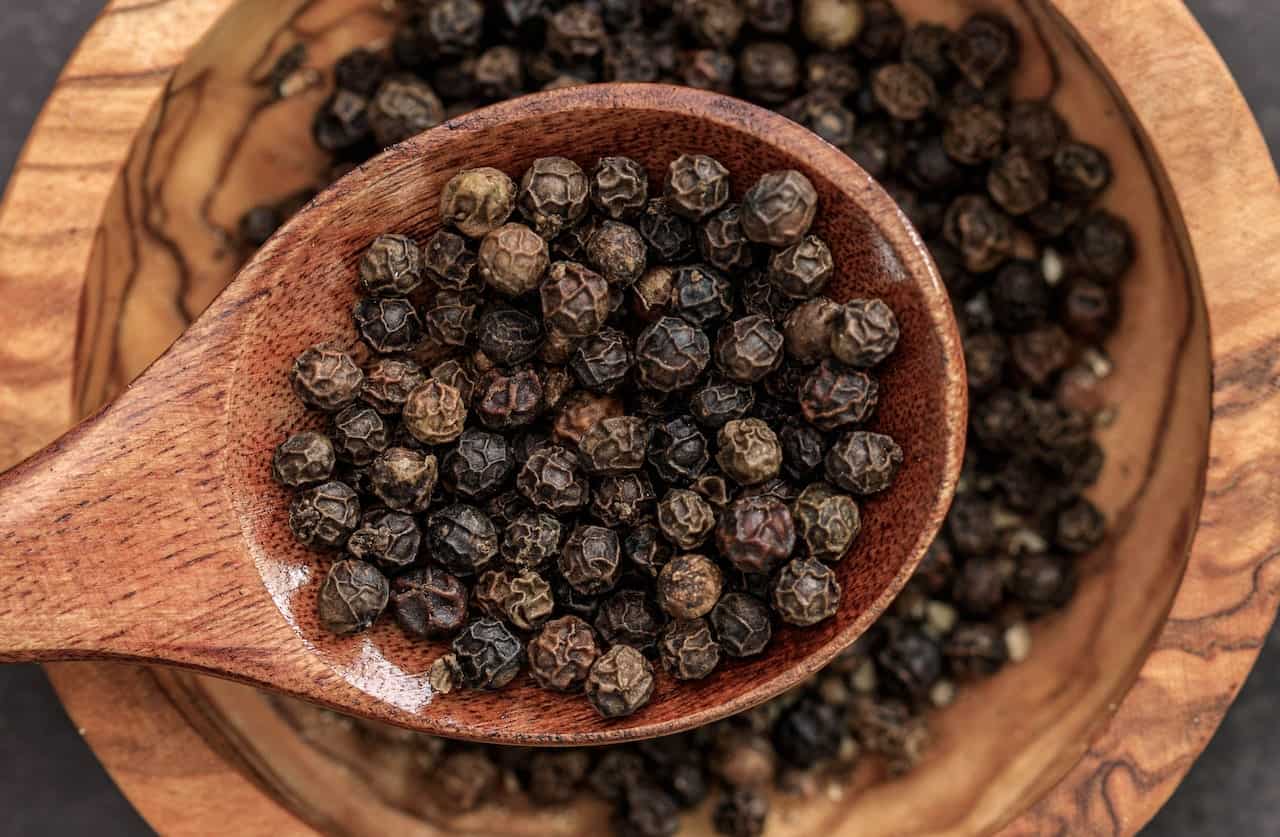
If you’re like most people, you may not think much about black pepper beyond the fact that it’s a common kitchen staple. But did you know that black pepper has some surprising health benefits? Specifically, black pepper can help reduce inflammation and improve digestion. Here’s how black pepper can help with inflammation.
Anti-Inflammatory Properties
The primary active ingredient in black pepper is piperine. This compound has been linked to anti-inflammatory properties. Studies have found that piperine blocks the production of pro-inflammatory cytokines and enzymes. These are molecules that play a role in inflammation.
In addition, piperine helps to increase the bioavailability of other anti-inflammatory compounds. It allows them to be more effective in fighting inflammation.
Black pepper is easy to incorporate into your diet. All you need to do is add a pinch or two to your meals! You can sprinkle it over salads, soups, meats, and fish dishes for an extra kick of flavor. Alternatively, you can take a piperine supplement if you don’t like the taste or texture of black pepper itself.
Relief of Other Conditions
In addition to its anti-inflammatory effects, black pepper helps boost digestive health. It is because it increases the production of hydrochloric acid in the stomach, which aids in digestion and reduces indigestion symptoms such as bloating and cramping.
Additionally, black pepper has antioxidant properties that can help reduce oxidative stress and the risk of certain diseases such as cancer.
Cinnamon

Many people use cinnamon in cooking and baking, but recent research has revealed some exciting potential health benefits when it comes to natural treatments for inflammation. Studies have shown that the compounds found in cinnamon can help reduce inflammation and provide relief for those suffering from chronic pain.
Anti-Inflammatory Properties
Cinnamon contains powerful polyphenols, which are plant-based compounds with anti-inflammatory properties. These polyphenols reduce inflammation by blocking the production of inflammatory molecules in the body. They also help fight oxidative stress, a major contributor to chronic disease and inflammation.
Reduce Pain Associated With Inflammation
Cinnamon also helps reduce pain associated with inflammation by acting as an analgesic and numbing agent. It can relieve muscle aches and stiffness caused by inflammation when applied topically.
Additionally, studies have shown that consuming cinnamon may help reduce pain in people suffering from arthritis or other chronic conditions related to inflammation.
Relief of Other Conditions
In addition to its anti-inflammatory effects, studies have also found that cinnamon can be beneficial for those with metabolic syndrome. It is characterized by high blood pressure, high cholesterol, and excess abdominal fat. It also helps with diabetes.
It is because cinnamon helps lower blood glucose levels and improve insulin sensitivity, which are important factors in managing these conditions.
Finally, cinnamon may reduce the risk of cardiovascular disease by improving cholesterol levels and reducing inflammation in the arteries. Research has also suggested that cinnamon may reduce cancer risk by preventing tumor growth and inhibiting cell proliferation.
Cayenne Pepper

Cayenne pepper is a popular ingredient in spicy dishes but has potential health benefits. In particular, cayenne pepper may provide relief from inflammation.
Anti-Inflammatory Properties
Cayenne pepper contains capsaicin, which has both analgesic and anti-inflammatory properties. Research suggests that capsaicin can help reduce inflammation of the skin, joints, muscles, and other organs. It reduces pain associated with inflammation while also helping to reduce swelling.
Moreover, cayenne pepper may also directly affect the immune system itself. Research shows that it may reduce the activity of certain cells in the immune system responsible for inflammation.
Reduce Pain Associated With Inflammation
Capsaicin found in cayenne pepper has long been used as a natural remedy to relieve pain associated with inflammation. Studies suggest capsaicin helps deactivate certain receptors responsible for sensing pain signals sent from inflamed tissue to the brain.
Capsaicin helps reduce pain associated with inflammation throughout the body by blocking these receptors from sending signals to the brain.
Furthermore, because it is a natural remedy for pain relief, no serious side effects are associated with its use, like many pharmaceutical drugs prescribed for this purpose.
Relief of Other Conditions
Capsaicin’s anti-inflammatory properties make it an ideal treatment option for various inflammation-related conditions, such as arthritis and fibromyalgia. In addition to reducing swelling and pain associated with these conditions, studies show that cayenne pepper may also help improve circulation throughout the body, which can further aid in recovery from any inflammatory condition.
Furthermore, research suggests that cayenne pepper may even have neuroprotective properties, which can help protect against nerve damage caused by chronic inflammation or other neurological disorders such as Parkinson’s disease or multiple sclerosis (MS).
Cardamom
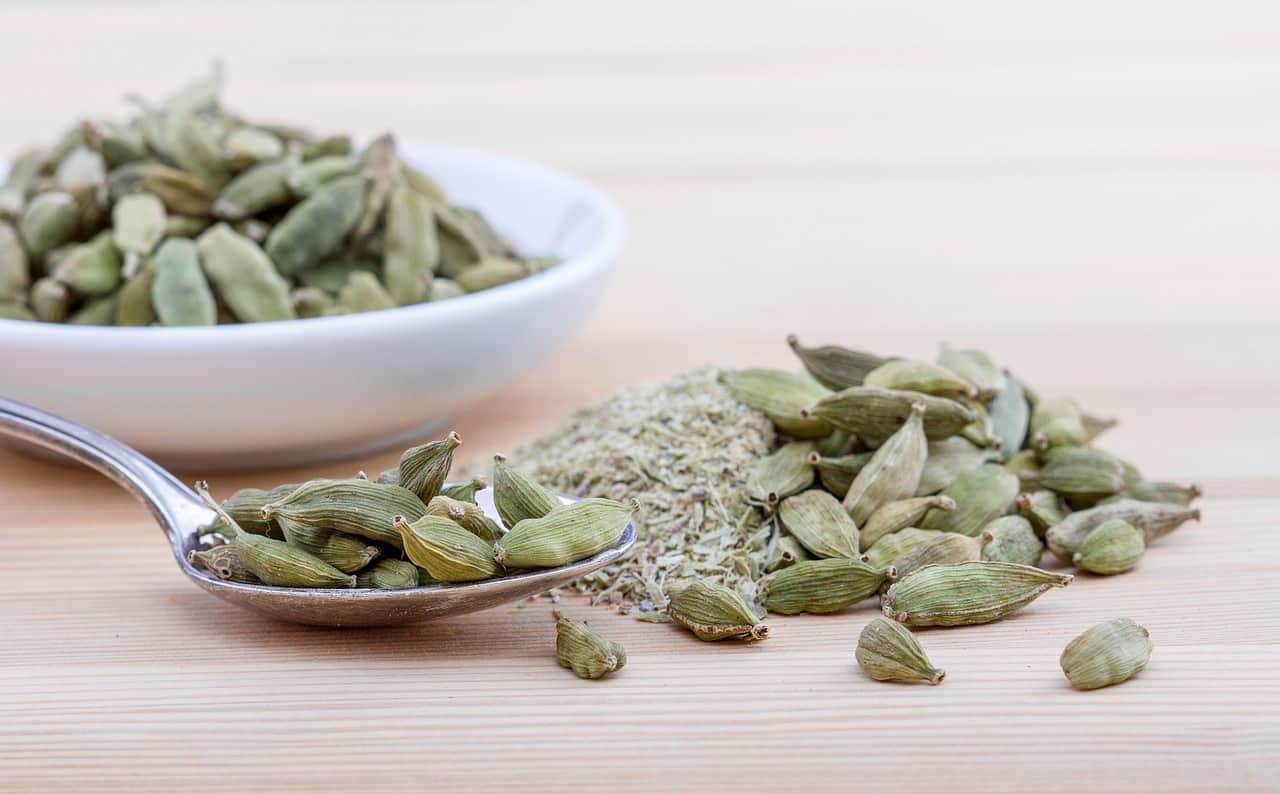
Cardamom, originating from Southeast Asia, has a unique and captivating sweet and spicy taste. But cardamom is more than just a tasty spice. It also has potential health benefits.
Anti-Inflammatory Properties
Cardamom contains essential oils, flavonoids, polyphenols, and anti-inflammatory antioxidants. Research indicates that these compounds interact with receptors in your body to reduce inflammation.
Cardamom’s healing capabilities come from its distinctive blend of fixed oils, phenolic acids, volatile oils, and sterols. In particular, the spices’ volatile oils have analgesic, anti-inflammatory, and antispasmodic qualities that can help reduce pain while also fighting off infection.
Furthermore, these same compounds provide a more restful night’s sleep as they soothe gastrointestinal spasms, which often cause discomfort.
Relieve Pain Associated With Inflammation
In addition to its anti-inflammatory properties, cardamom can help relieve other inflammation-related conditions. For example, it can reduce nausea and improve digestion due to its carminative effects, which are the ability to expel gas from the digestive system.
Cardamom can also help reduce anxiety levels by decreasing cortisol, a hormone released during stress, and increasing serotonin levels.
Also, research has shown that regularly consuming cardamom may improve cognitive function due to its protective effects against oxidative damage caused by free radicals.
Rosemary

Rosemary is an aromatic culinary delight, hailing from the sunny climes of the Mediterranean. An excellent choice for flavor and aroma, rosemary complements an array of meats such as beef, lamb, and chicken. You can purchase the herb in its dried or fresh form or ground it into a powder to suit your culinary needs.
Not only does this herb add flavor to food, but it also offers numerous health benefits.
Anti-Inflammatory Properties
Studies suggest that rosemary may be a great option to diminish inflammation. It is likely attributed to the abundance of polyphenols, especially rosmarinic acid and carnosic acid, within rosemary leaves.
These compounds inhibit the production of certain enzymes that can cause inflammation, such as cyclooxygenase (COX) and 5-lipoxygenase (5-LOX). In addition to these compounds, rosemary contains flavonoids that act as antioxidants and help reduce oxidative stress caused by inflammation. Research suggests that rosemary may be just as effective as traditional medications in reducing inflammation.
Reduce Pain Associated With Inflammation
In addition to reducing inflammation in the body, rosemary can also reduce pain associated with inflammation. It is likely due to its ability to block specific nerve pathways responsible for transmitting pain signals from the affected area.
Some studies have even found that using rosemary oil topically was more effective than ibuprofen for relieving pain caused by arthritis and joint stiffness.
Research in test tubes and with animals has revealed that rosmarinic acid significantly diminishes inflammation markers related to various conditions, such as osteoarthritis, atopic dermatitis, gum disease, asthma, and more.
Relief of Other Conditions
In addition to its anti-inflammatory properties, research suggests that rosemary may relieve other inflammation-related conditions, such as asthma, allergies, skin conditions, and digestive issues.
It can also improve cognitive function and boost immunity, benefiting people suffering from chronic inflammatory diseases like rheumatoid arthritis or lupus.
Red Pepper
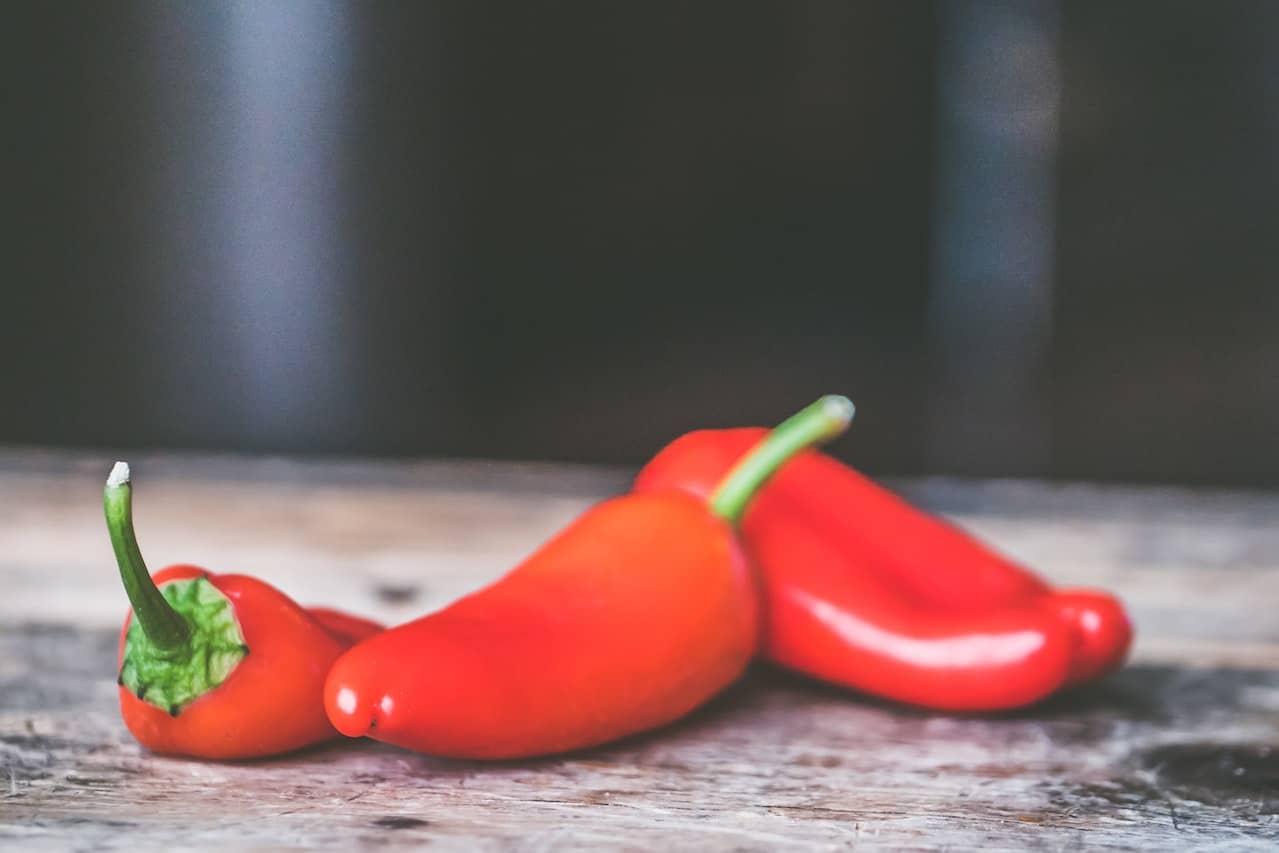
Red pepper is a popular ingredient that adds flavor and heat to many dishes. It is derived from the chili family, which includes jalapeños and habaneros, and has numerous health benefits.
Anti-Inflammatory Properties
Red pepper contains an active ingredient called capsaicin, which has anti-inflammatory properties. It means that it can help reduce inflammation in certain parts of the body.
Studies have shown that capsaicin works by inhibiting substances called pro-inflammatory cytokines, which are responsible for triggering inflammation. In addition, capsaicin can block inflammatory enzyme activity, helping to reduce inflammation further.
Reduce Pain Associated With Inflammation
Capsaicin also helps to reduce pain associated with inflammation. Blocking specific nerve pathways in the body helps desensitize inflamed areas and reduce pain levels. It can help increase serotonin production, which helps to relieve pain naturally.
Furthermore, capsaicin is known to activate opioid receptors in the brain, which can provide additional relief from pain caused by inflammation.
Relief of Other Conditions
In addition to helping with inflammation and reducing pain levels, red pepper may also provide relief from other conditions such as arthritis and psoriasis. Studies have shown that when applied topically or taken orally, capsaicin can help reduce joint swelling and stiffness associated with arthritis.
It can also help alleviate symptoms of psoriasis, such as itching and flaking of the skin, when applied topically.
Peppermint
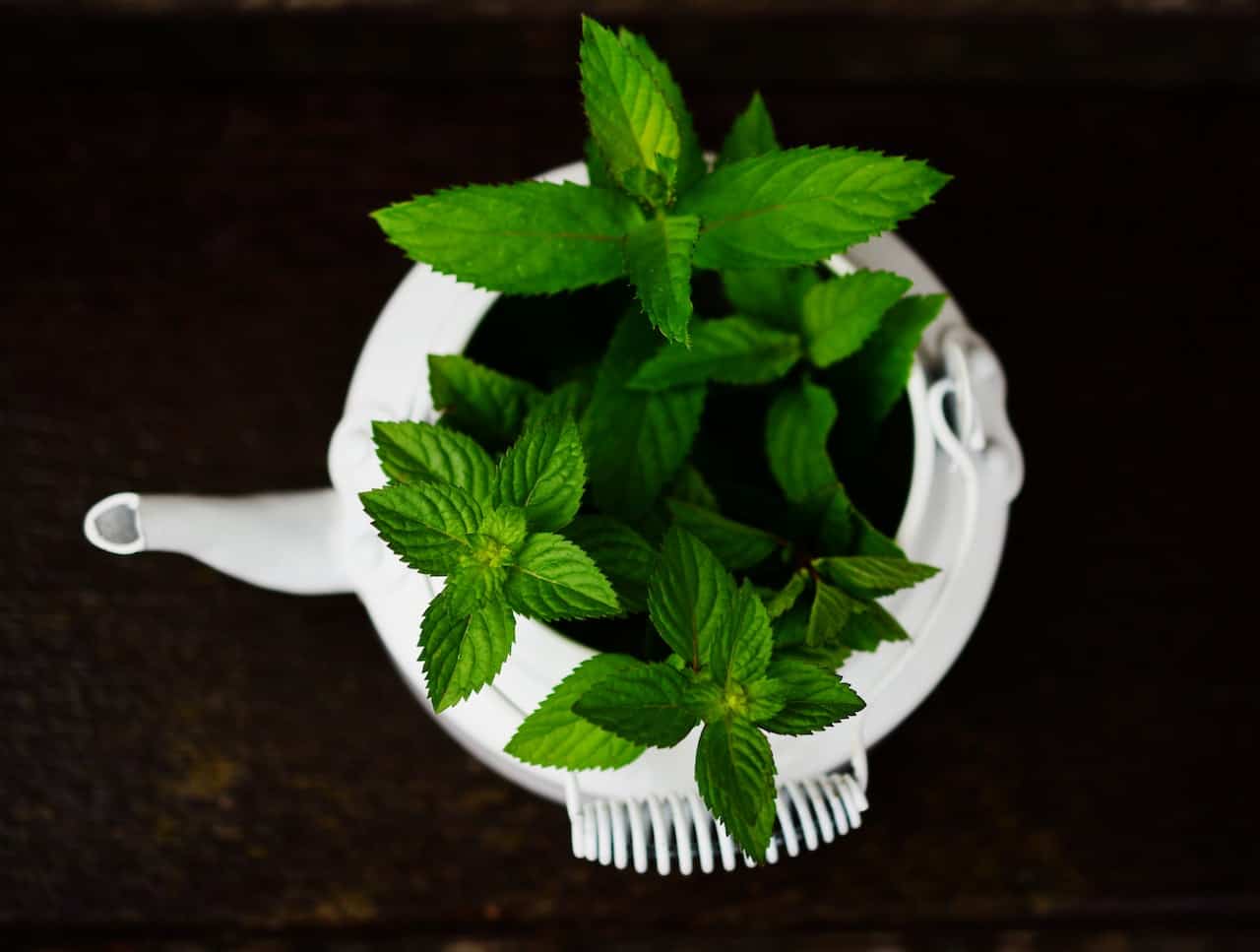
Peppermint, a popular herb celebrated for its flavoring ability and cooling effects, prominently grows in Europe and Asia, where many used it as an alternative remedy long before the arrival of modern medicine.
Thanks to its potent antibacterial properties and digestive benefits, peppermint was observed to be highly effective for various ailments.
Anti-Inflammatory Properties
The active ingredient in peppermint is menthol, an organic compound found naturally in plant leaves. Menthol has long been known to have anti-inflammatory properties due to its ability to block specific signaling pathways associated with inflammation.
In addition, menthol can help reduce pain by blocking certain neurotransmitters that carry pain signals from the body’s inflamed areas.
Reduce Pain Associated With Inflammation
Research has also shown that you can use peppermint oil topically to reduce inflammation in the skin and muscles. Studies have found that applying peppermint oil directly onto inflamed skin can reduce swelling, redness, and discomfort associated with inflammation. Additionally, research suggests that inhaling peppermint essential oils can help relieve headaches caused by sinus congestion or tension.
Relief of Other Conditions
Peppermint may also be beneficial for treating other conditions due to its anti-inflammatory properties. For instance, research suggests that drinking peppermint tea may help relieve symptoms of irritable bowel syndrome (IBS), a condition characterized by abdominal cramps and bloating. Also, studies have found that mint extract may help relieve nausea and vomiting due to its calming effect on the stomach muscles.
Frequently Asked Questions
Are there any side effects of using spices for inflammation?
Although many people have turned to seasoning their food with spices for various health benefits, such as reducing inflammation, it is important to note that there can be side effects when using spices medicinally. Not only can the potency of some spices be hard to judge without a proper dosage, but different reactions to the same spice can vary greatly from person to person.
Also, there is potential for spices such as cayenne pepper and turmeric to irritate sensitive stomachs or throats if used in excess. Those interested in this centuries-old approach to fighting inflammation should consult a medical professional before making any dietary changes.
What are the best ways to use spices for inflammation?
Fighting inflammation doesn’t have to mean giving up flavorful food. The right herbs and spices can be quite beneficial in providing relief from chronic inflammation. Spices like turmeric, ginger, and garlic are some of the best ways to target inflammation naturally, thanks to their high antioxidant content. Cayenne pepper is also incredibly useful for reducing swelling in joints and tissues while providing helpful anti-inflammatory properties.
Furthermore, incorporating spices into your diet can help create flavorful meals that won’t increase inflammation as they don’t contain as much fat and sugar as processed foods. Overall, using herbs and spices is a great way to manage the effects of inflammation without sacrificing taste!
How often should I consume spices for inflammation?
Generally, the ideal way to take spices for inflammation is to incorporate them into your daily diet in moderate amounts. For example, turmeric is known for its potent anti-inflammatory effects, and you can easily add it to dishes like soup, curry, or even smoothies. Similarly, cayenne pepper contains high levels of capsaicin which is known to help reduce inflammation when taken in moderate doses daily.
What are some recipes that use these spices?
You can mix your DIY anti-inflammatory blend with spices in the pantry. Not only will they bring flavor to your meal, but you can have fun experimenting with different combinations and potions! Start with an Indian-inspired dahl made from lentils, split peas, and ground spices like cumin, coriander, cardamom, and turmeric.
Create a complex Mediterranean-style Tabbouleh salad using cilantro, parsley, red onion, garlic powder, and black pepper. Or get creative with Moroccan-style couscous featuring paprika, cinnamon, ground ginger, chiles, and Saffron threads. When cooking these recipes, be sure to adjust the amounts of spices to fit your desired flavor level.
Final Words
Inflammation can be challenging to deal with, but there are many herbs and spices out there that can help. Turmeric, ginger, garlic, cinnamon, and cayenne pepper are all excellent choices for people looking to reduce inflammation in their bodies. As with any dietary supplement or treatment plan, you should always consult your doctor before using them.
While these spices have anti-inflammatory effects, they can also interact with other medications or treatments you may be doing. With the right choice of herbs and spices and careful use, you can reduce inflammation in no time. The key is finding what works best for your body type and how to use them most effectively for maximum benefits!
